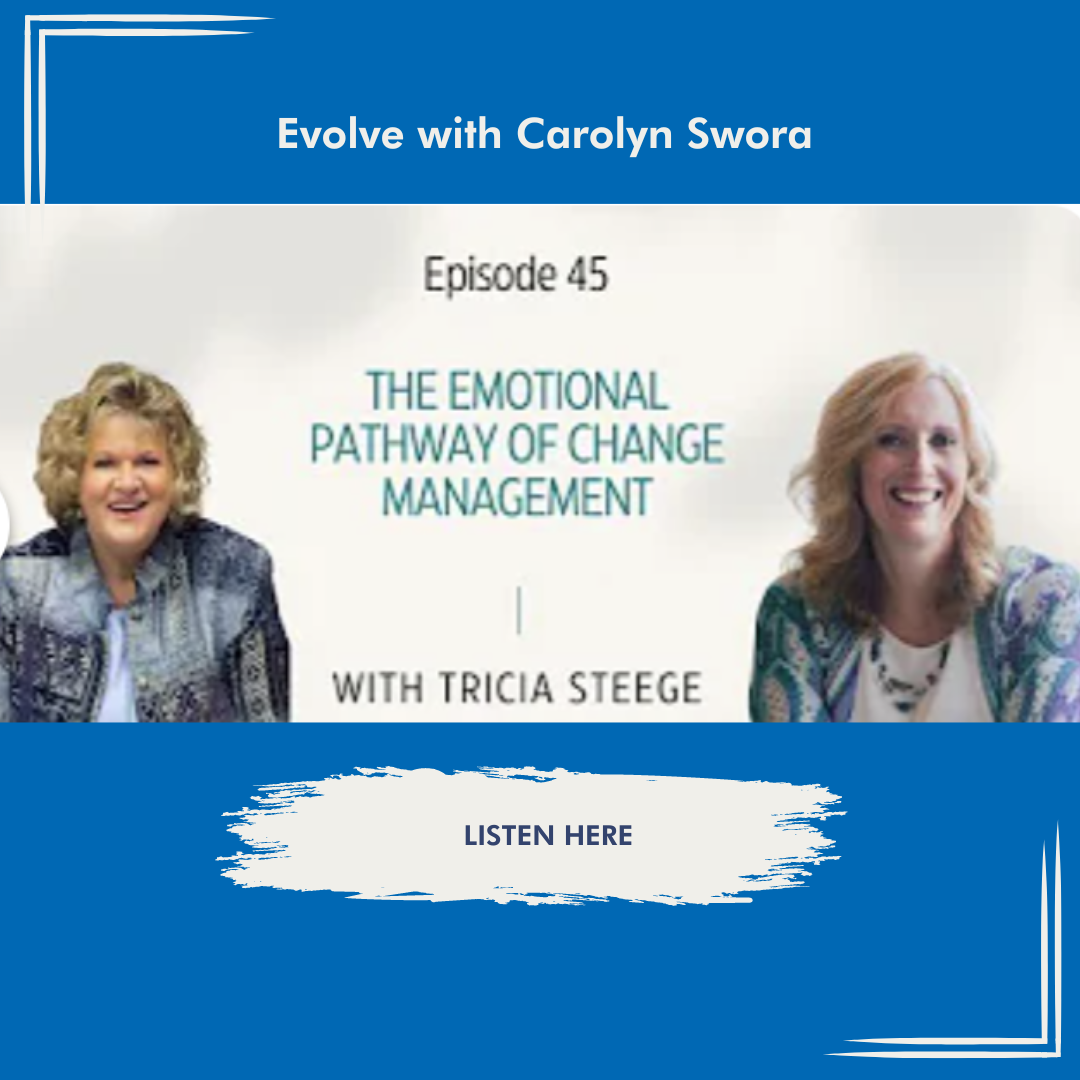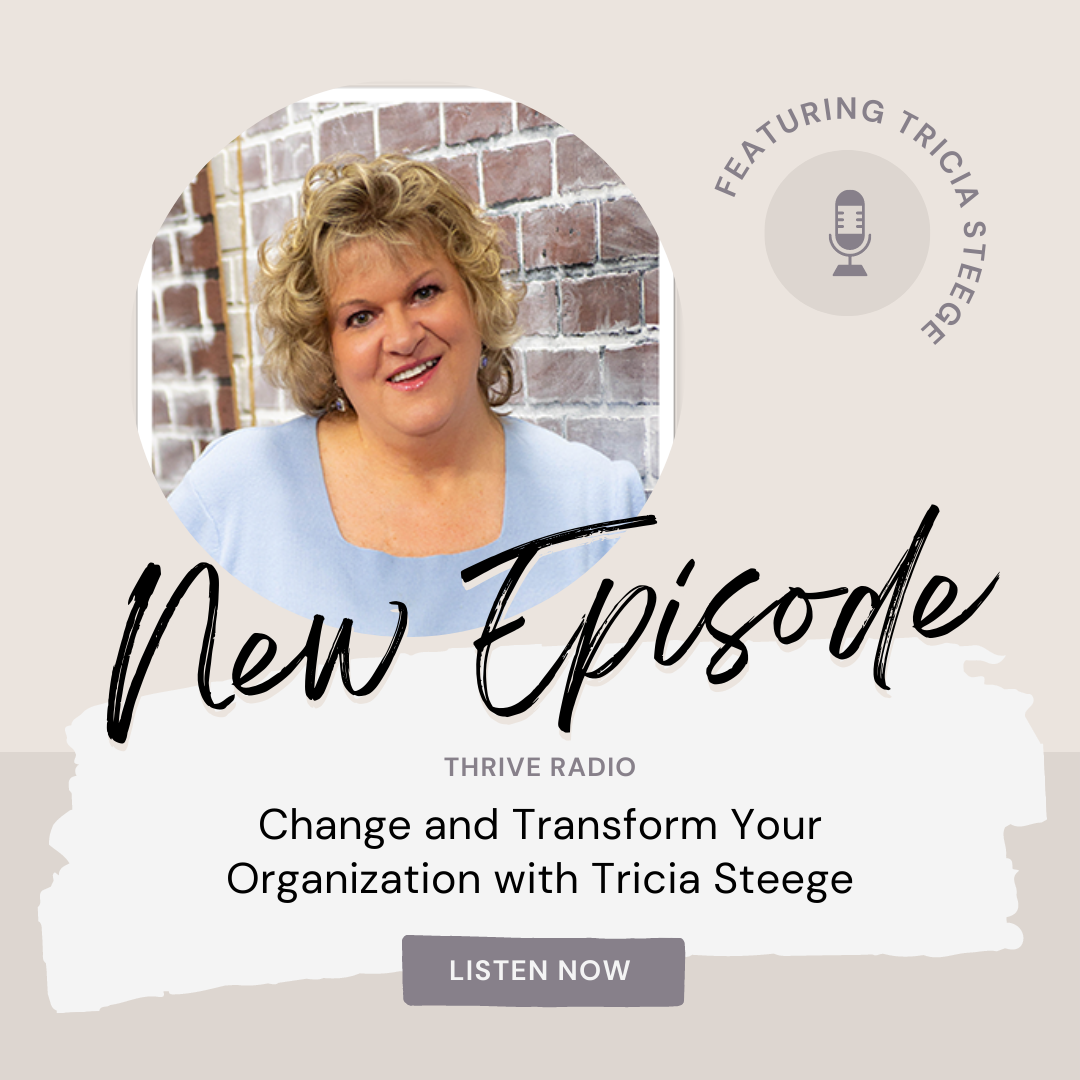Podcast Features
In this episode, I join Carolyn Swora from Evolve for a discussion that focuses on dealing with and navigating organizational change, as well as the emotional side of leadership.
This conversation centers around the notion of change as an emotional journey and I explain the William Bridges model of endings, neutral zone, and beginnings as stages individuals go through during change.
We discuss the importance for leaders to build trusting relationships with their teams, to understand their concerns and fears. Emphasizing the significance of leaders being conscious of their reactions and the impact these have on their team dynamics, I also explain the importance of managing emotions for effective leadership.
We also talk about the validity and value of emotional intelligence in leadership and change management, along with the role of trauma as an often silent stakeholder in the process of change.
Did you know 70% of change initiatives fail? Companies need to have strategies to prepare their team for change to make it successful and widely accepted. I joined Aimee Montgomery of Thrive Radio to chat about ways to motivate your team for change so there is less resistance.
In this podcast you will learn:
- What is involved during change
- How neuroscience is being used to empower leaders
- How to get leadership aligned to create the change needed
What we don’t know about our employees may be one of the keys to why so many of our change initiatives fail to deliver on their promises. In this episode of the Change Management Review podcast, Managing Editor Brian Gorman discusses the role of trauma in change. Tricia Steege, who has done significant research in this area, identifies trauma as “the silent stakeholder.”
Approximately 25% of adults have experienced four or more adverse childhood events, according to a study by the CDC and Kaiser Permanente. These events affect the development of the brain which, as adults, can mean that our employees may be triggered into a fear-based response by messages that have a much different response in others.
Tricia and Brian discuss the importance of addressing the silent stakeholder, whose responsibility that is, and the importance of preparing those individuals to communicate change effectively.










